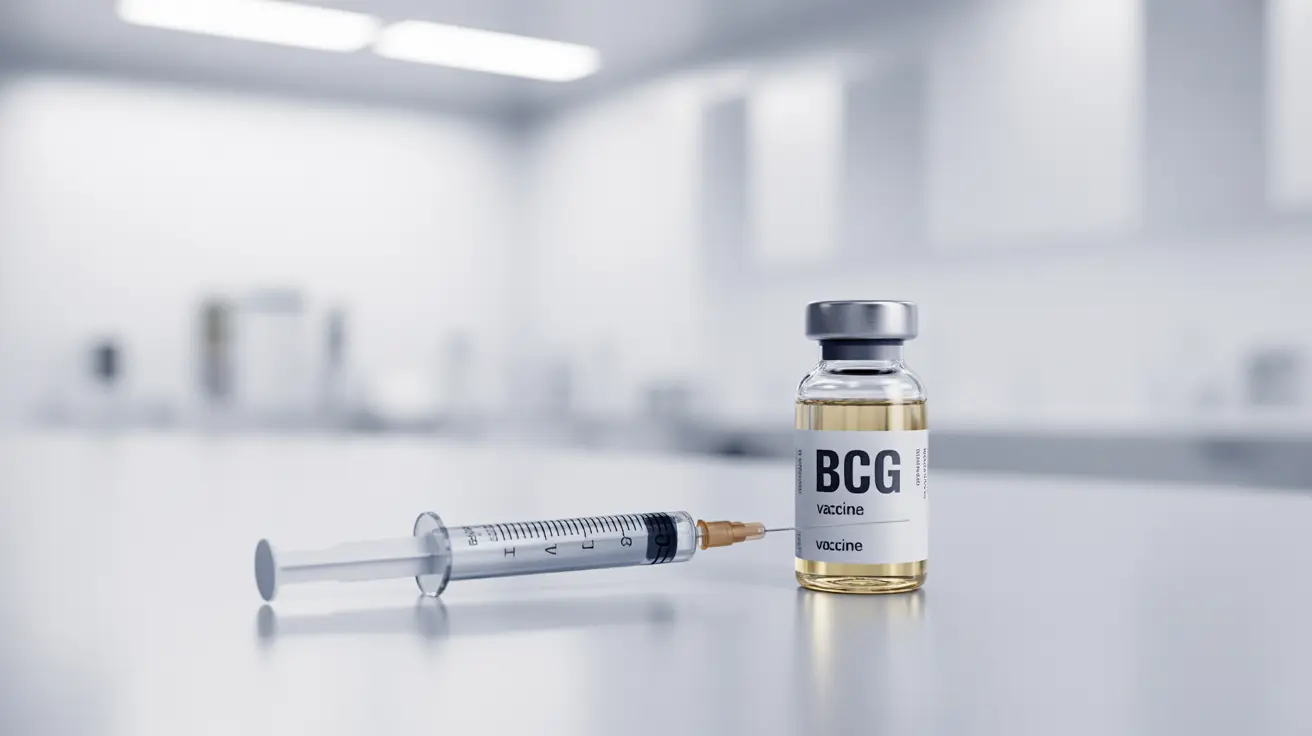Tuberculosis (TB) remains a significant global health concern, prompting many to ask about available vaccination options. The Bacillus Calmette-Guérin (BCG) vaccine has been the primary preventive measure against TB for nearly a century, though its use varies significantly worldwide.
Understanding the role and effectiveness of TB vaccination is crucial for public health, especially for those living in or traveling to regions where TB is common. Let's explore everything you need to know about TB vaccines, their effectiveness, and who should consider getting vaccinated.
Understanding the BCG Vaccine
The BCG vaccine contains a weakened form of bacteria related to TB, designed to stimulate immunity without causing disease. It's been in use since 1921 and remains the only licensed vaccine against tuberculosis.
This vaccine is particularly effective at preventing severe forms of TB in children, including TB meningitis and miliary TB. However, its effectiveness varies depending on geographic location and other factors.
Who Should Get the BCG Vaccine?
The BCG vaccine is not universally recommended in all countries. Its use depends largely on TB prevalence in different regions. In countries with high TB rates, the vaccine is typically given to:
- Newborns and young children
- Healthcare workers in high-risk settings
- People moving to areas with high TB rates
- Those with frequent exposure to drug-resistant TB
Effectiveness and Limitations
The BCG vaccine's effectiveness varies significantly across different populations and age groups. While it provides strong protection against severe childhood TB forms, its effectiveness in preventing pulmonary TB in adults is more limited.
Protection in Children
Research shows the BCG vaccine is 70-80% effective in preventing severe forms of TB in children, making it a crucial tool in pediatric TB prevention, especially in high-risk areas.
Adult Protection Levels
The vaccine's effectiveness in adults ranges from 0-80%, with most studies showing limited protection against pulmonary TB. This variation has led many low-TB-incidence countries to focus on other prevention strategies.
Side Effects and Safety Considerations
The BCG vaccine is generally safe, but like any medical intervention, it can cause some side effects:
- Small, red bump at the injection site
- Mild fever
- Swollen lymph nodes
- Scarring at the injection site
Future of TB Vaccination
Researchers are actively working on developing new, more effective TB vaccines. Several candidates are currently in clinical trials, aiming to provide better protection against different forms of TB across all age groups.
Frequently Asked Questions
Is there a vaccine for tuberculosis (TB) and how effective is the BCG vaccine?
Yes, the BCG vaccine is currently the only licensed vaccine for TB. Its effectiveness varies, providing 70-80% protection against severe childhood TB but showing variable effectiveness in adults.
Who should get the BCG vaccine for tuberculosis and at what age is it usually given?
The BCG vaccine is typically given to newborns and young children in countries with high TB rates. Healthcare workers, travelers to high-risk areas, and those with frequent TB exposure may also be candidates.
Does the BCG vaccine protect adults from pulmonary tuberculosis?
The BCG vaccine's effectiveness against pulmonary TB in adults is limited and variable, ranging from 0-80% in different studies.
What are the common side effects and risks associated with the BCG vaccine?
Common side effects include a small red bump at the injection site, mild fever, swollen lymph nodes, and potential scarring. Serious adverse reactions are rare.
Are there new or better vaccines being developed to prevent tuberculosis?
Yes, several new TB vaccine candidates are currently in various stages of clinical trials, aiming to provide more effective protection across all age groups.




